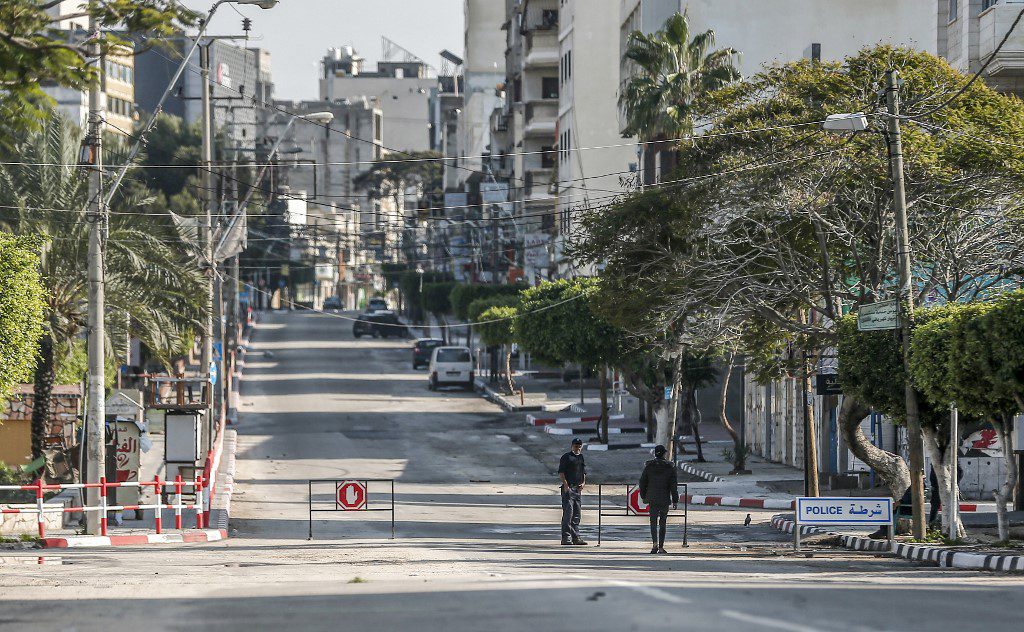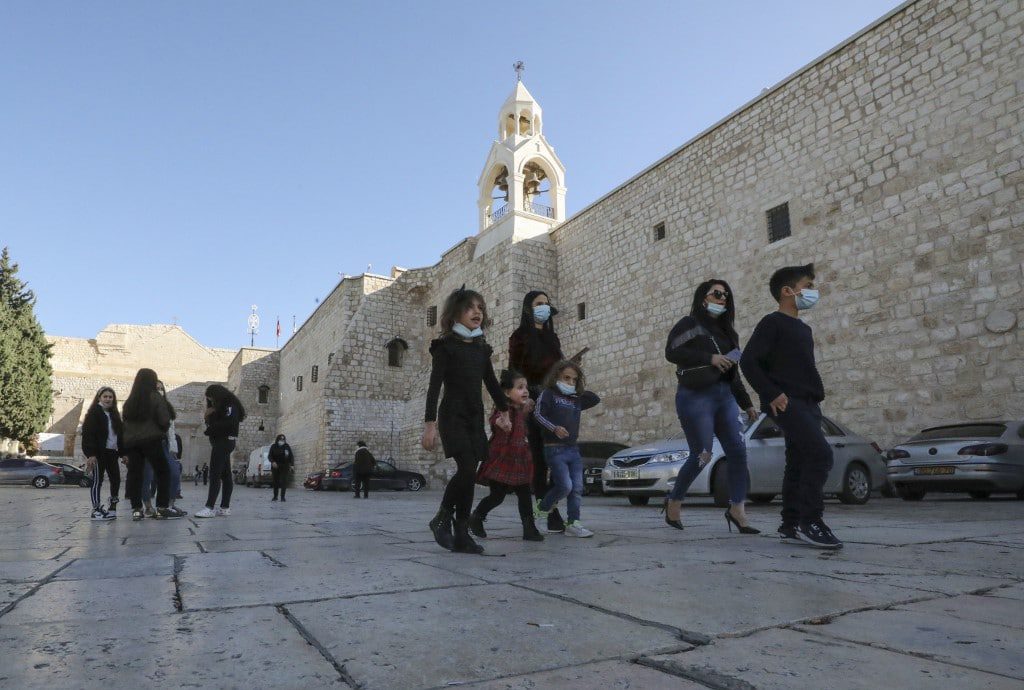
By: Nour Odeh
The Palestinian healthcare system is on the brink of collapse due to a public health crisis. Usually, the health sector is stressed beyond its coping capacity due to Israeli occupation attacks, as was evident during the Israeli war on Gaza in 2014. However, for the past nine months, the COVID19 pandemic has tested Palestinian capacity, endurance, and renowned ability to cope with extreme circumstances.
The first cases of COVID19 were confirmed in Bethlehem on 5 March 2020. The Ministry of health took immediate steps, including locking down Bethlehem to contain the spread of the pandemic. It was a traumatic experience for the Palestinian collective, which is only familiar with lockdowns vis-à-vis the Israeli occupation and is thus instinctively inclined to respect it. To work around this real psychological impediment, the Palestinian government went to great lengths to humanize and normalize the lockdown. The strategy worked and for months, Palestine had supreme command over the pandemic, earning praise from the World Health Organization on several occasions.
The Palestinian response to COVID19 was predictable in some aspects. At the onset of the pandemic, there were only 82 hospitals in the occupied West Bank and Gaza Strip. According to the Palestinian Central Bureau of Statistics, there are approximately 2 doctors per 1000 Palestinians and 1.3 hospital beds per 1000 citizens. In Gaza, the situation was especially alarming, with only 78 functioning Intensive Care Unit (ICU) beds. Hence, the Palestinian government worked on improving its modest capacities, setting up specialized health facilities to deal exclusively with COVID19 cases, increasing the number of ICU units, getting PPE and testing swabs, and increasing testing and tracing capacity. While a national response plan was quickly developed and regularly updated, effective response was an uphill battle, logistically and financially.
But while countries had predictable challenges with expected solutions to overcome them, the Palestinian government and Hamas had to contend with an additional host of unique challenges, starting with the reality and dynamics of Israeli occupation and the obligation towards Palestinian refugees across the region.
On the ground, the Palestinian government has effective control over only 18% of the occupied West Bank, in so-called areas A, which comprises cities and large communities. Approximately 60% of the territory is beyond the reach of Palestinian law enforcement or government control. This presented a logistical and operational nightmare for the Palestinian health response, particularly in enforcing lockdowns as well as monitoring and tracing new cases. Israel also took measures to prevent a Palestinian health response in Jerusalem and its surrounding villages, including detaining and harassing volunteers.
Despite initial international enthusiasm about Palestinian-Israeli cooperation in responding to the pandemic, Israeli occupation practices on the ground soon exposed such praise as disconnected from reality. Despite the pandemic, Israel continued to detain scores of Palestinians and the number of infections among Palestinian detainees continues to rise. Israeli displacement of Palestinians in the occupied West Bank, including East Jerusalem, also broke new records in the year 2020. Whether by demolitions or forced evictions, Israel made nearly 1000 Palestinians homeless and affected more than 5,000 Palestinians in 2020. Meanwhile the United Nations estimates that up to 800 or more are at risk of being forcibly expelled in Jerusalem alone.
Meanwhile, from the onset of pandemic, it was clear that the health system in the besieged Gaza Strip, which has long been operating in crisis mode, was in no position to cope with an influx of COVID patients. The prospect of COVID19 spreading in the territory was nothing short of a medical and humanitarian nightmare for Palestinian and international agencies. Ironically, Israel’s draconian siege of the Gaza Strip and its 2.5 million Palestinian residents initially spared Gaza a health crisis it could not confront.

Hamas authorities, that have controlled the Gaza Strip since 2007, set up quarantine facilities near the Rafah border with Egypt. Residents returning to Gaza were held in those facilities for 14 days and those testing positive remained in the hastily prepared facilities until they recovered. However, the pandemic came back with a vengeance in the fall, spreading like wildfire in one of the most densely populated areas of the world. By 16 December 2020, the positivity rate in Gaza had risen to over 40%; a shocking number with catastrophic implications. Despite assistance from the international community and the Palestinian government sharing its limited resources with Gaza, the situation is now at a breaking point.
In refugee camps across the region, the situation is equally dire. In cooperation with UNRWA, which recently ran out of funds, an emergency response was put in place to meet the needs of Palestinian refugees in Jordan, Syria, and Lebanon. But with infection and poverty rates rising across the region, mitigating the spread of the pandemic in refugee camps is looking increasingly untenable.
Hospitals in Palestinian cities in the West Bank and Gaza are now at or near full capacity. Experts have resorted to the media to raise awareness and plead with the public to heed medical advice, wear masks, and socially distance. They are also urging patients suffering chronic diseases like hypertension and diabetes not to shy away from seeking medical help when needed while all minor and elective surgeries have been cancelled since March 2020.
Unlike sovereign states, many options are simply not available to the Palestinian government to mitigate national emergencies like this pandemic. In addition to lacking control over all its territory and suffering a political and geographic rift that effectively separate Gaza from the West Bank, the Palestinian government is facing a crushing financial crisis that limits its mobilization options, including hiring the necessary human resources in the health sector. The cost of the pandemic has been tremendous, ranging from 7 to 35% of GDP, depending on estimates while the World Bank estimates that the Palestinian GDP to contract by at least 8%. And despite the economic relief produced by the government’s decision to accept receiving tax revenues collected by Israel, experts do not believe this step will be enough to lift the Palestinians from the current slump.
The problem in the Palestinian response to the pandemic is not due to lack of human resources or expertise. It is the cumulative result of a political process that failed to deliver sovereignty on the one hand and a series of domestic shortfalls that failed to prioritize establishing a national health insurance system that can answer most, if not all, the needs of the Palestinian public without external assistance.
The COVID Emergency task force is recommending new restrictions and lockdowns in the West Banks. But with the government unable to provide financial assistance to the service, tourism, and other sectors hardest hit by the pandemic, a decision to implement a full lockdown will face fervent opposition.
The cumulative fatality rate of COVID in Palestine remains relatively low at 0.9%, compared to other developing nations, thanks in part to Palestine’s predominantly young population. However, the sharp upward trend of new cases and serious cases is an ominous reminder that the pandemic is fast approaching the point of no return. In the coming days, the Palestinian government may not have a choice but to save the health sector from complete meltdown, even if such a critical decision has devastating financial implications.


